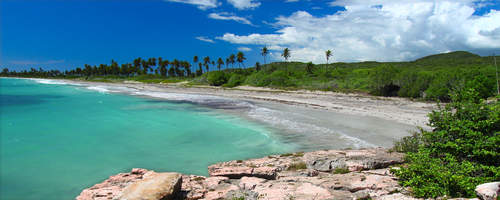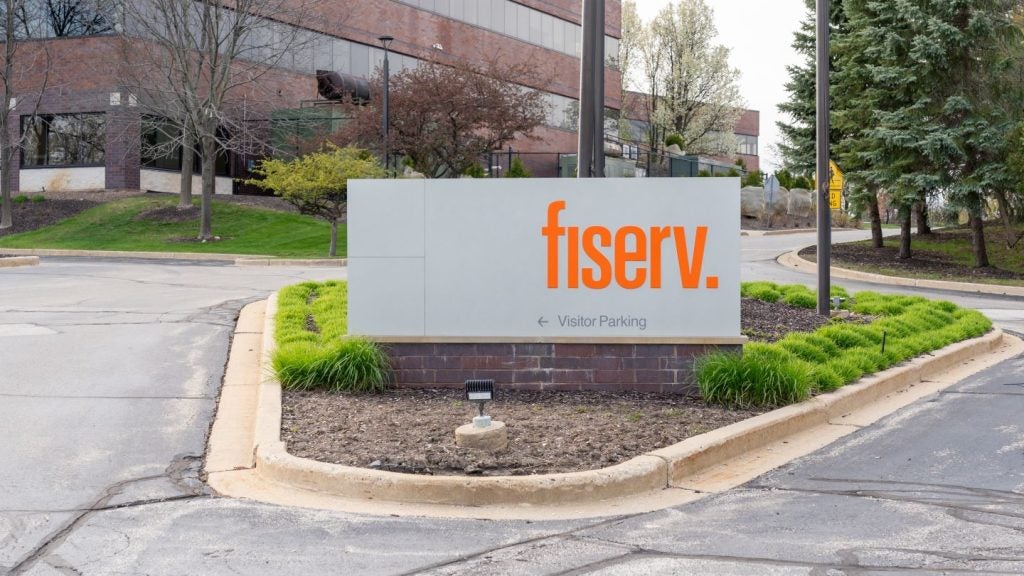
Caribbean and Central American acquirer Evertec is looking to profit from the surge in electronic transactions in emerging markets across Latin America. Evertec sees cash as its number one competitor in the region, Robin Arnfield reports.
Evertec was founded in 2004 as the acquiring and transaction processing arm of Banco Popular de Puerto Rico, the largest Puerto Rican bank. In September 2010, Banco Popular sold a 51% stake in Evertec to a subsidiary of US private equity firm Apollo Management.
"The fact that Evertec is now majority-owned by a non-bank, Apollo Management, can only help it to win more bank clients across the region," says Chris Burns, CEO of Bermuda-based First Atlantic Commerce, which provides e-commerce gateways for Evertec and other Caribbean and Central American acquirers.
"Apollo is looking for very strong growth from Evertec, which suggests Apollo is considering an IPO for the company at some point," says Bob Hughes, a managing partner at US-based consultancy Bank Solutions Group.
Evertec operates in 19 countries, the majority of which are located in the Caribbean and Central America. Its headquarters and largest operation is in Puerto Rico, with other countries served including Colombia, Costa Rico, the Dominican Republic, Guatemala, Honduras, Mexico, and the US.
"Puerto Rico, the Dominican Republic, Panama, and Guatemala are Evertec’s largest markets," says Hughes.

US Tariffs are shifting - will you react or anticipate?
Don’t let policy changes catch you off guard. Stay proactive with real-time data and expert analysis.
By GlobalDataEvertec operates the ATH (A Toda Hora/At Any Hour) PIN debit and ATM network in Puerto Rico, which processes 80% of all debit card and 70% of all ATM transactions on the island. It also operates ATH-branded PIN debit and ATM networks in the US and British Virgin Islands, the Dominican Republic, Costa Rica, and El Salvador. "ATH is the leading ATM network in Puerto Rico, the Virgin Islands, and the Dominican Republic," says David Lott, senior vice president at US consultancy Speer & Associates.
Core businesses
Evertec has three core businesses: merchant acquiring services; payment processing; and business solutions. Its merchant acquiring business acquires merchants directly through partnerships with sponsoring banks in Puerto Rico, Costa Rica, the Dominican Republic, the Virgin Islands, and El Salvador. "In 2011, the merchant acquiring business processed 325 million transactions," says Mike Vizcarrondo, Evertec’s executive vice president.
Evertec has over 16,000 merchant clients, and directly manages 4,984 ATMs and 107,455 point-of-sale terminals. This comprises 1,557 Latin American and 3,427 Caribbean ATMs, and 85,082 Latin American and 22,373 Caribbean POS terminals. Evertec acquires ATH PIN debit cards, electronic benefit transfer (EBT) cards, gift cards, Visa, MasterCard, American Express, Discover, and Diners Club over its POS network.
As part of its payment processing business, Evertec acts as an issuer-processor to credit and debit card issuers, providing financial institutions with access to the ATH Network and other card networks, and supplies third-party merchant processing services to acquirers. Other payments services include processing automated clearing house (ACH) payments, providing governments with EBT card processing, and providing merchants and banks with billing services. Vizcarrondo says Evertec’s payment processing business handles over 600 million transactions a year.
Evertec’s business solutions operation provides services such as cash and cheque processing, core bank transaction processing, and IT consulting.
Acquiring
"Evertec provides third-party acquirer-processing services in all the countries it operates in," says Vizcarrondo. "Currently, we are mainly a third-party acquirer-processor, and we want to expand our direct acquiring business. When we become an acquirer instead of just a processor, it’s more profitable for us, as we own the relationship with the merchant in partnership with our sponsoring bank. So we’re looking for bank partners in countries where we act as processors and not as direct acquirers."
"Evertec is the largest direct acquirer in Puerto Rico," says Luis Alvarado, Evertec’s senior vice president, business development and sales for Latin America. "We have acquiring partnerships with two Puerto Rican sponsoring banks, one of which is Banco Popular."
In the Dominican Republic, Evertec has an equity stake in CardNET, the largest acquirer on the island with an 80% share of the market. CardNET’s other owners are the largest banks in the Dominican Republic. "CardNET acquires both Visa and MasterCard transactions, while the other acquirer, VisaNet, only processes Visa cards," says Delma Reyes Marrero, MasterCard’s country manager for the Dominican Republic.
According to its website, CardNET has 25,000 merchant clients, over 35,000 POS terminals, and an annualized sales volume of RD$ (Dominican Peso) 115 billion (US$2.82 billion). In 2010, CardNet processed over 150 million transactions.
"Evertec is the biggest acquirer in Central America," Antonio Gonzalez and Alexeis Perera, who are both managing directors at Latin American cards consultancy CYBS Consulting, tell CI. "Evertec’s acquiring fees are far from ideal, but there aren’t too many other options for merchants in the region. Its local competitors are smaller players."
"In the small Central American countries, for example Costa Rica, Guatemala, and El Salvador, Evertec provides merchants with very good customised marketing products," says Hughes. "For instance, it offers instant rewards redemption at the point of sale as well as in-store repayment of credit card instalment loans." Repaying credit card loans by a series of fixed instalments, instead of through revolving credit, is common in Central America, says José Vargas, client services senior associate partner at US-based cards analytics and fraud management technology firm FICO.
Financial results
In its third quarter ending 30 September 2012, Evertec’s total revenues rose by $2.8 million, or 3%, year-on-year to $83.8 million. Merchant acquiring revenues rose by $2.2 million, or 15%, while payment processing revenues increased by $1.1 million, or 5%, and business solutions revenues fell by $0.5 million, or 1%.
Evertec’s total revenues for the nine months to 30 September 2012 rose by $15.1 million, or 6%, year-on-year to $250.7 million. Merchant acquiring revenues increased by $7.5 million, or 17%, while payment processing revenues increased by $6.8 million, or 11%, and business solutions revenues increased by $900,000, or 1%.
The second quarter of 2012 saw Evertec’s revenues rise by 7% year-on-year to $84.4 million, while revenues for the six months to 30 June 2012 saw revenues rise by 8% year-on-year to $166.9 million.
Speaking during a third-quarter 2012 earnings call, Peter Harrington, Evertec’s president and CEO, predicted that Evertec’s revenue growth rate in the fourth quarter of 2012 would be in "high single digits." Harrington said the slowdown in third-quarter 2012 growth was due to contract timing issues. "For example, there was pullback on IT expenditure (by Evertec clients) due to the November 2012 Puerto Rican general election," he said.
Evertec reported post-tax total comprehensive income of $3.6 million in the third quarter of 2012, compared to a loss of $5.7 million a year earlier. In the nine months to 30 September 2012, its post-tax total comprehensive income rose to $95.16 million from $21.58 million in the year-earlier period.
In November 2012, Evertec received a 15-year tax grant from the Puerto Rico Government. In return for committing to maintain at least 700 staff in its Puerto Rico data centre and invest at least $200 million in Puerto Rico during the life-time of the grant, Evertec will enjoy a reduced tax rate of 4.0% on its data processing operations, plus a 90% and 60% exemption on property and municipal taxes respectively.
Harrington said that the tax grant will enable Evertec to invest in its processing platform and enable its processing business to expand in Puerto Rico and internationally.
Latin America
"We’re seeing double-digit growth in Latin America, which is our primary growth area," Harrington said in the third-quarter 2012 earnings call. "We expect to grow organically and through strategic acquisitions in Latin America."
"Over the last two years, Evertec has become more focused on growing internationally, as it doesn’t have very much more room to grow in Puerto Rico," says Claudia Cermeli, a client partner at FICO. "For example, Evertec set up an operation in Colombia in 2012, and signed its first Colombian acquiring customer in 2012."
In February 2012, as part of a management restructuring following Apollo’s acquisition of a majority stake, Evertec hired Harrington to replace Félix Villamil as president and CEO. Harrington was President of Latin America and Canada at First Data from 2002 to 2008. Having handed day-to-day operational responsibility to Harrington, Villamil is now vice-chairman of Evertec’s board of directors.
In a July 2012 interview with Puerto Rican newspaper El Nuevo Dia, Harrington said Evertec’s objective in Colombia and Mexico is to process at least 1 million electronic transactions over the next two years in each country.
"We plan to expand all over Latin America, from Mexico right down to the bottom of the continent," says Vizcarrondo. He argues that, although in countries such as Brazil and Mexico, acquiring is dominated by a limited number of players, this doesn’t mean the door is closed to new entrants.
"In Latin America, there are dominant incumbent acquirers and processors such as Brazil’s Redecard and Mexico’s E-Global which have been in the market for years," says Vizcarrondo. "But the reality is that the barriers are coming down, as Latin American governments are encouraging greater competition in acquiring. Also, the geographical walls between different markets are being eroded because of the global economy."
Vizcarrondo notes that, in many Latin American countries, private-label store card issuers target consumers whose income is too low to qualify for open-loop credit cards. "The big Latin American banks don’t offer credit cards to low-income consumers," he says. "So this gives us an opportunity to offer private-label card processing services in Latin America. There’s also a major opportunity for us to offer correspondent banking network services, enabling retailers such as convenience stores and pharmacies to act as agents for banks."
Correspondent banking is common in Latin America, as it is not cost-effective for Latin American banks to set up branches in rural areas or in low-income districts of large cities. "In the correspondent banking market, we provide services such as connecting up POS terminals in convenience stores and pharmacies to banks’ IT systems as well as transaction processing," Vizcarrondo says.
Latin America’s e-commerce market represents another opportunity for Evertec. "We process payments at the back end for many of the Central American and Caribbean e-commerce gateways," says Vizcarrondo. However, according to Burns, from a regional point of view, Evertec is currently much bigger in card-present processing than it is in card-not-present processing.
In Mexico, where Evertec currently only provides third-party acquiring services, the company wants to form direct acquiring partnerships with banks and credit unions, Vizcarrondo says. "There is low POS terminal penetration in Mexico, as the big acquirers are focused on the large retailers," says Alvarado. "This means there are many smaller merchants who don’t have POS terminals. So, while we do cater for large Mexican merchants, we are partnering with niche Mexican banks to target smaller merchants which are not the focus of the large acquirers."
US processors
"The large US processors are trying to enter the Latin American markets, but the customization required to get into these countries requires a lot of effort," says Alvarado.
"Currently, First Data is only a major player in two Latin American countries, Argentina and Mexico," says Hughes.
"Our strength is that we are very flexible and can customize our offerings for local markets," says Alvarado. "We have the language skills and the local market knowledge, and are perceived as Latin American because of our Puerto Rican base. We can implement technologies that are localized for individual Latin American markets and their regulatory requirements. It’s very hard for a US company to do this."
"The reason you don’t see the big US processors such as First Data and TSYS in the small Caribbean islands is because of these islands’ idiosyncrasies," says Peter Hetzler, a managing partner at Bank Solutions Group. "The cost of customising their platforms for the local banks would be too high, as there are not enough cards in issue in these islands. So the US acquirers would have to charge the local banks a high fee for customising their platforms for the local markets."
Hetzler says Evertec can afford to offer products in the small Caribbean islands as it has a lower cost structure than the large US processors.
Country comparison
"Puerto Rico is the most advanced market in terms of card usage of the Latin American and Caribbean countries we operate in," says Alvarado. "Costa Rica is the second most advanced market, due to Costa Rican government efforts to move cash payments to debit cards. Costa Rican credit and debit card transaction volumes have been growing very rapidly."
According to Alvarado, there has been a major move in the last two to three years to migrate cash transactions to debit cards in Panama. "Previously, Panamanian debit cards were mainly used in ATMs," he says. "Nicaragua, Guatemala, El Salvador, and Honduras all face challenges in moving their unbanked consumers to electronic transactions. Guatemala is the largest of these four countries in terms of card penetration, and is moving very aggressively to roll out debit cards and electronic payments."
"The Central American e-commerce market is taking some time to develop," says Burns. "Historically, Central America wasn’t well served in terms of e-commerce, due to a lack of broadband Internet penetration and the fact that Central America is still a cash-based economy with a large unbanked population. However, as Central Americans’ demand for consumer goods has increased, the regional e-commerce market has been growing. There are now more players in the Central American e-commerce space, as the market has become more sophisticated."
‘In the Dominican Republic, banking penetration rose from 30% of the population in 2009 to 38% in 2011," says Reyes Marrero. "Only 12-15% of the Dominican Republic’s population has payment cards of any type. In the last few years, we’ve seen some growth in card purchase volumes in the Dominican Republic, but many people still just go to the ATM and take out their salary, instead of making debit card purchases at the point-of-sale."
"Evertec’s strategy is to co-operate very closely with government initiatives across the region to bring cash-based transactions into the formal economy and to encourage the use of electronic payments, be these credit, debit or prepaid card payments," says Vizcarrondo. "For example, Latin American and Caribbean governments are issuing EBT cards, and they are charging higher point-of-sale taxes for cash purchases than for card transactions."
"There are huge amounts of transactions that can be moved from cash to electronic payments, as there are still large numbers of unbanked consumers in the region," says Alvarado. "For example, in Mexico and Colombia, only 40% and 30% respectively of transactions are electronic."
"We like to say that Evertec’s number one competitor is not other companies but cash," says Vizcarrondo.







